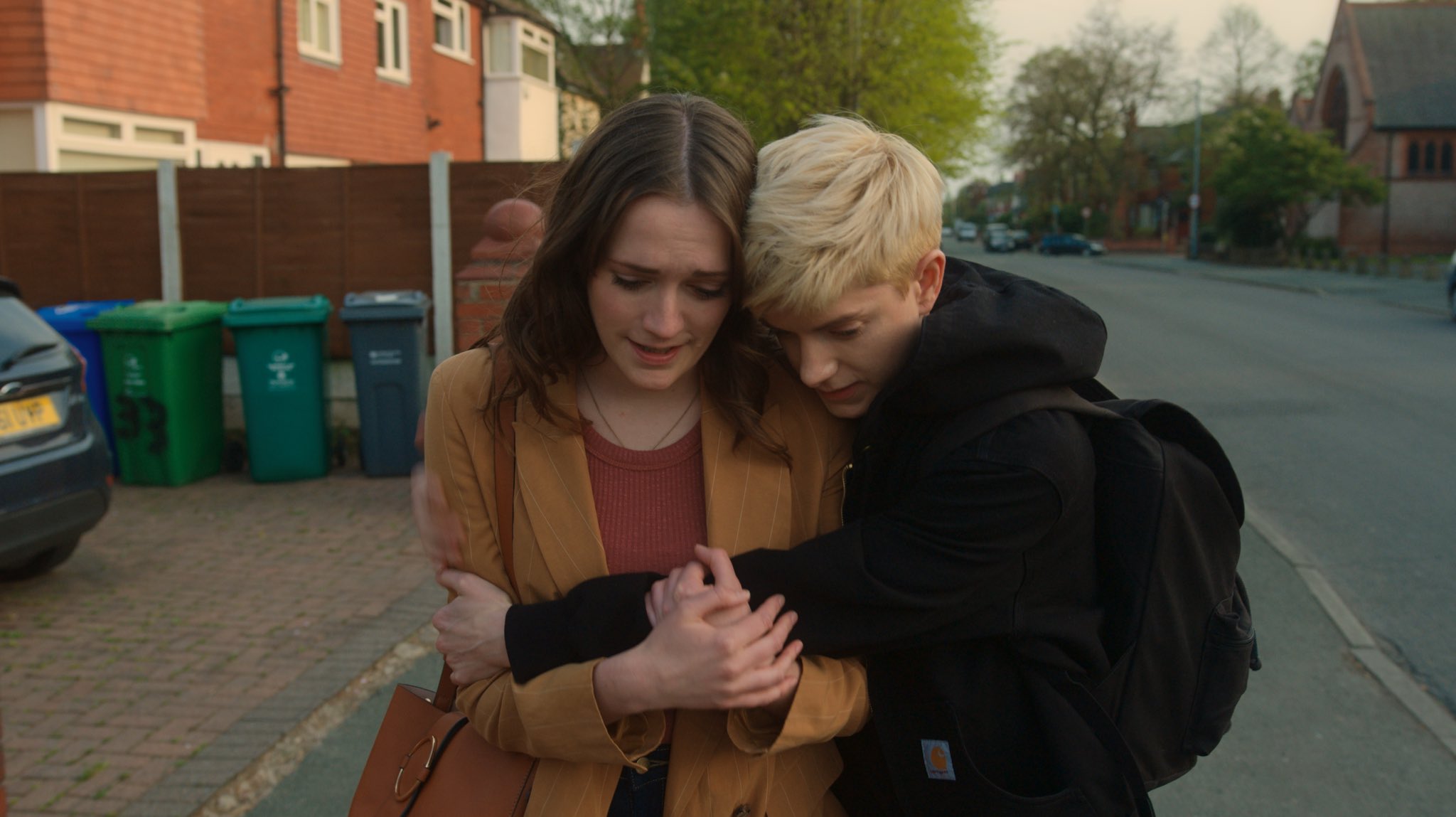
Craving a show with representation, a multitude of emotions and an enticing soundtrack? TV Critic Stephanie Kawkyard explains why Feel Good is the show for you
Love can be messy and complicated, but it is often worth it. This message is communicated particularly well by Channel 4’s Feel Good. The comedy-drama revolves around comedian and recovering drug addict Mae – portrayed by Mae Martin, who also co-writes the show alongside Joe Hampson – as she navigates her interpersonal relationships while trying to remain sober.
“Mae’s relationship with her parents is crucial to the plot, serving as a source of humour as well as tension
It would be fitting to say that relationships are at the core of the show. The most obvious example of this is the romantic relationship between Mae and her girlfriend George (Charlotte Richie), which provides an insight into the modern dating experience. Feel Good follows the couple through the highs and the lows, the latter including the conflict that ensues when two people from different backgrounds with distinct experiences come together. Mae’s relationship with her parents is crucial to the plot, serving as a source of humour as well as tension, and even her interactions with her fellow addicts and her co-workers are adequately fleshed out. Familial bonds and friendships between side characters also have satisfying development. While Feel Good explores all different types of love, the central message is that self-love is the most important and at the end of the day no one can help you more than you can help yourself.
“There are a few bits of acting that leave something to be desired
Actors’ performances are generally engaging and convincing, making it easy to empathise with their struggles. Many viewers will be familiar with Lisa Kudrow from her role in Friends, and she performs just as excellently in Feel Good, although the character of Mae’s mother Linda is markedly different to that of Phoebe Buffay. Sophie Thompson should be commended for her portrayal of Maggie, a former addict who agrees to be Mae’s sponsor and who brings an odd charm to the show. There are a few bits of acting that leave something to be desired – line delivery by Martin herself can be short of flawless – however, this does not reduce the overall enjoyment of the show or viewers’ ability to perceive the characters as complex beings with their own emotional troubles.
In terms of pacing, events in Feel Good happen at a logical speed, with the passage of time being easy to follow. The soundtrack is phenomenal: music used in the scenes fits the mood and the mix of upbeat and sombre tracks keeps the audience engrossed. Especially effective is the use of a harrowing high-pitched noise whenever Mae feels tempted to use again, which becomes a leitmotif of sorts. The intense atmosphere this creates emphasises the struggles addicts face even when they have been sober for some time.
“The subject of sex as a whole is addressed without shame and is portrayed realistically rather than in the glamorised fashion
Feel Good touches on some delicate subjects, and generally, it does so with the sensitivity required. Something that is done particularly well regarding the portrayal of addicts is the demonstration that people of all races, ages and socio-economic backgrounds can be addicts. There is no one ‘type’ of addict and stereotypes are avoided. Another major plot point concerns ‘coming out’ and dealing with internal confusion regarding sexuality. The subject of sex as a whole is addressed without shame and is portrayed realistically rather than in the glamorised fashion audiences are accustomed to. Feel Good also explores non-binary gender identities, something that is rare to see on television, even in shows that consider themselves progressive. Despite the tackling of serious issues, humour is key to Feel Good’s appeal and is used appropriately to add levity to the difficult situations characters sometimes find themselves in.
Ultimately, Feel Good explores what it means to be human: to be flawed and make mistakes, but to grow from them and be deserving of happiness despite them.
Rating = 4/5
Check out more British TV here:
Comments